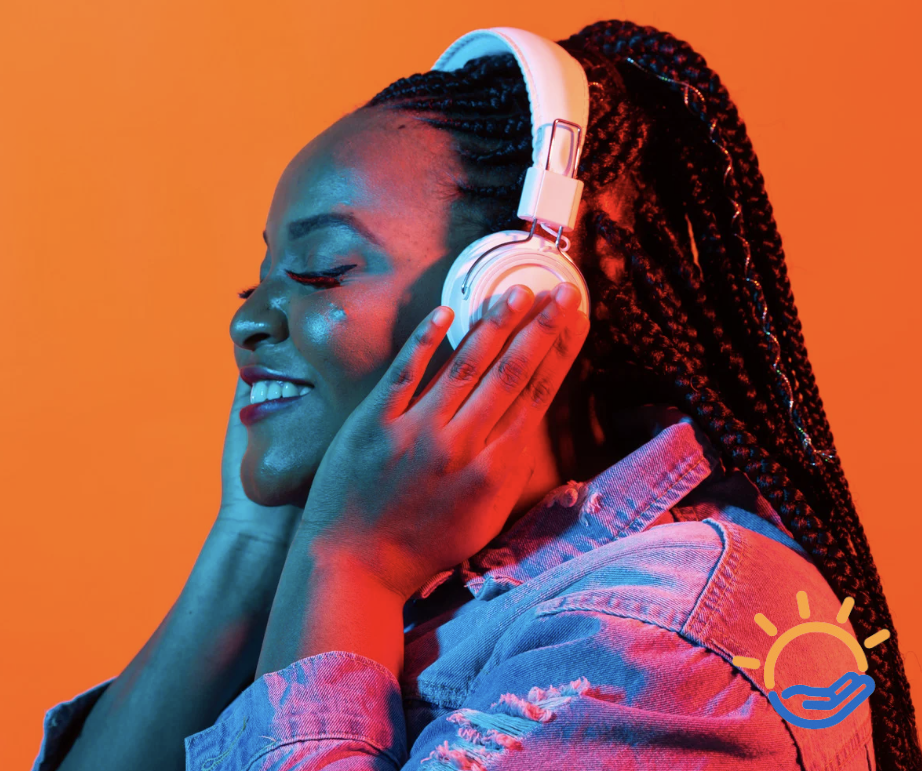In an online group I’m in about sobriety, someone said listening to music is part of their recovery. I started learning drums after I got sober; a friend started learning guitar after she quit drinking. Not only does recovery allow a different relationship to music; music can aid in recovery and benefit mental health.
A 2019 study in Proceedings of the National Academy of Sciences (PNAS) found that listening to music releases dopamine in the brain.[1] Dopamine is part of the reward system in the brain and is involved in learning and motivation.
It is also heavily implicated in addiction. When you chronically use drugs and alcohol, your brain gets artificially flooded with dopamine. In order to maintain balance, the brain lowers dopamine receptors, making it difficult to feel pleasure from typically pleasurable things.
Participating in healthy activities that produce dopamine—like listening to music—can be very helpful in recovery. Darin McFayden—a DJ and producer who is trained in meditation—thinks that meditation and music have a lot in common.
“Music is a reliable source of transformational experience for many, and we are attracted to music for the same reasons that meditators meditate,” he says. “Music and meditation both allow a fuller and richer experience of our emotions: They stop our incessant and often negative mental chatter and offer us an opportunity to inhabit the present moment more fully and meaningfully.”[2]
As McFayden points out, music can help us tap into our emotions. You might have noticed that if you’re really down, listening to happy music can feel strange. Often, people are drawn to music with a similar emotional feel as the mental state they’re in.
Music allows you to sit with and process your emotions in a healthy way. In music therapy, the therapist guides you to make or listen to music in response to your feelings. They may check in to see how different genres of music make you feel.
But as Suzanne Hanzer—President of the International Association for Music and Medicine (IAMM)—points out, anyone can tap into the type of catharsis that music therapy can bring. She suggests “active listening,” where you really concentrate on what you hear and the feelings, memories, or sensations it brings up.[3]
“We can do that even when we’re feeling at our most isolated and sad,” she says. “We can take control; we can be empowered by the music to feel differently.”[4]
If you are struggling with a substance use or mental health disorder, there is help and hope. TruHealing Centers offers high-quality treatment for addiction and mental health disorders in facilities across the country. Our staff—many of whom are in recovery themselves—will help you process emotions and build towards long-term recovery. Call an admissions specialist at 410-593-0005.
[1] https://www.pnas.org/content/116/9/3793
[2] https://qz.com/quartzy/1274667/neuroscience-shows-listening-to-music-has-kind-of-the-same-effect-as-meditation/
[3] https://www.aarp.org/health/brain-health/info-2020/music-mental-health.html
[4] https://www.aarp.org/health/brain-health/info-2020/music-mental-health.html








